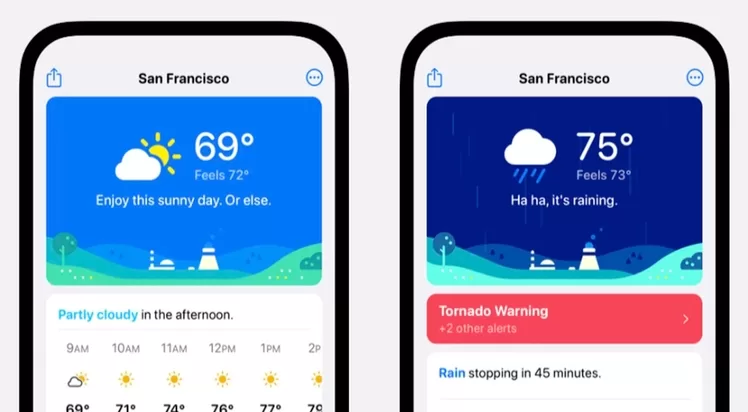Internet providers and mobile operators in Brazil unblocked Telegram on Saturday. Earlier, a federal judge partially reversed a decision banning the Messenger app for refusing to provide the Brazilian federal police with requested data on neo-Nazi chat groups.
The nationwide blocking of the service is disproportionate, the court has now decided. However, the competent judge maintained a daily fine of one million reais (about 180,000 euros) for Telegram’s refusal to provide the data at first instance. After attacks on schools and kindergartens, a court ordered the blocking of Telegram in Brazil on Wednesday.
The full suspension “is not appropriate given the far-reaching, nationwide impact on the freedom of communication of thousands of people who are utterly unfamiliar with the facts under investigation,” Judge Flávio Lucas said in a federal court statement on the ruling. But: “Technology companies must understand that cyberspace cannot be a free territory … with its own rules created and administered by those who exploit it commercially,” the judge continued.
Dispute over data release
The messenger service was briefly blocked across the country for the first time in March last year. The reason: Telegram had ignored requests to delete certain offending content and user accounts. At that time, the federal police in Brazil were investigating a blogger who was said to have spread questionable content on the messenger service and was said to be close to then-President Jair Bolsonaro. The Supreme Court ordered Telegram to be shut down nationwide on the grounds that it had not cooperated with the authorities. It lasted two days and was canceled again.
The current case is about a police investigation into a shooting at a school in November. At the time, a former student wearing a swastika bulletproof vest shot dead three people and wounded 13 with a semi-automatic pistol after breaking into two schools in the small town of Aracruz, Espirito Santo state. The 16-year-old is believed to have been a member of extremist channels on Telegram, where instructions on murder and bomb-making were disseminated. Federal police asked Telegram to provide the names, tax ID numbers, profile photos, bank information and registered credit cards of members of the channel that allegedly incited violence in schools.
Telegram argues that the requested information cannot be obtained “technically”. In fact, it seems unclear how much of the requested data Telegram can provide. All that is required to create a Telegram account is a phone number, and pseudonyms are regularly used. Since December, Telegram has also offered the option of creating accounts with anonymous numbers.
Again and again attacks on schools and kindergartens
The Brazilian federal police are currently investigating several armed attacks on schools and kindergartens, which have increased sharply in recent months. According to the US news agency AP, there have been about two dozen bloody attacks on schools in the country since 2000, half of them in the past 12 months. It was only at the beginning of April that a 25-year-old killed four children in a crèche in Blumenau with an axe. Shortly before that, a 13-year-old in São Paulo had attacked several teachers and a student with a knife. A 71-year-old teacher died as a result.
In its efforts to curb school violence, the Brazilian government is focusing in particular on the influence of social media. The aim is to prevent further incidents and, in particular, to hold platforms accountable for failing to remove content allegedly inciting violence.
(noun)



